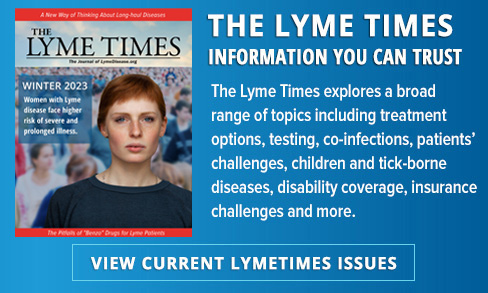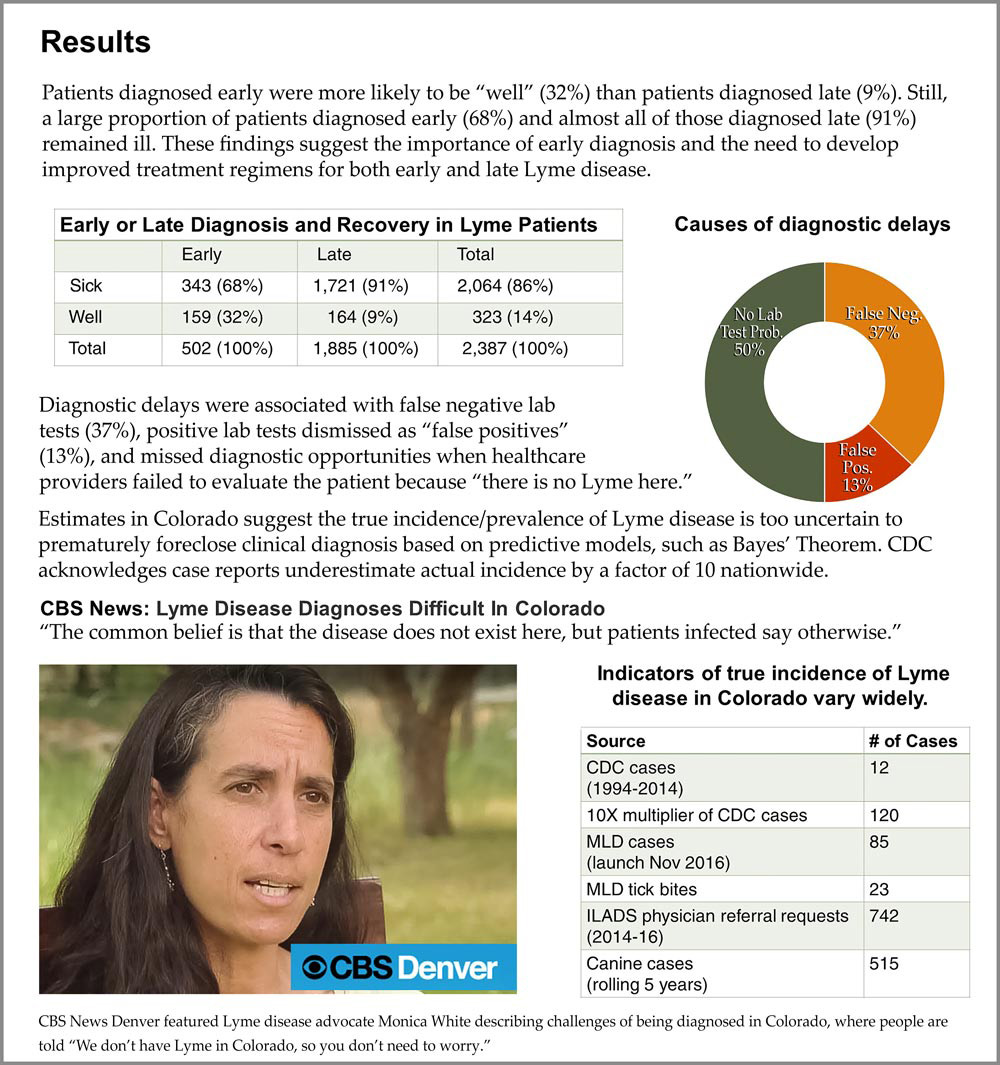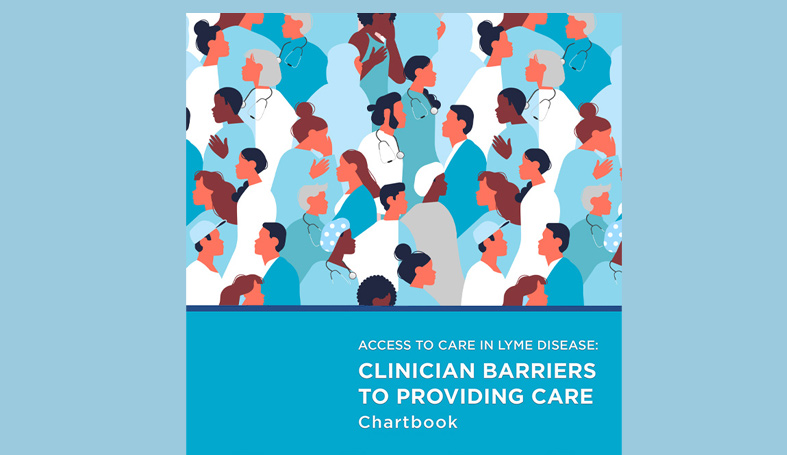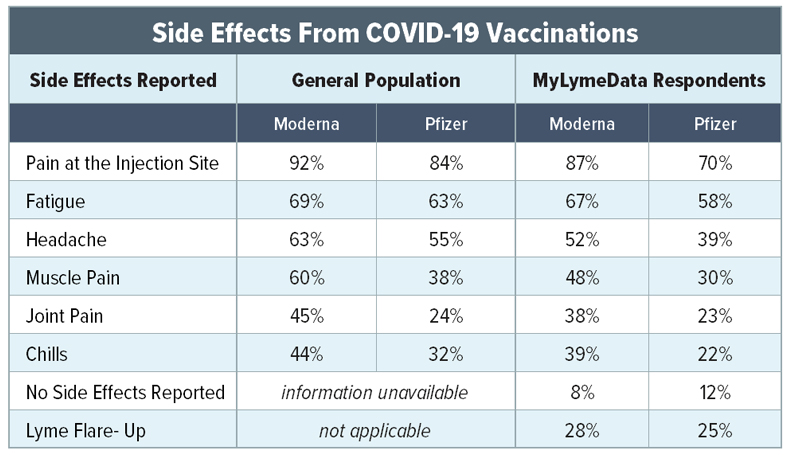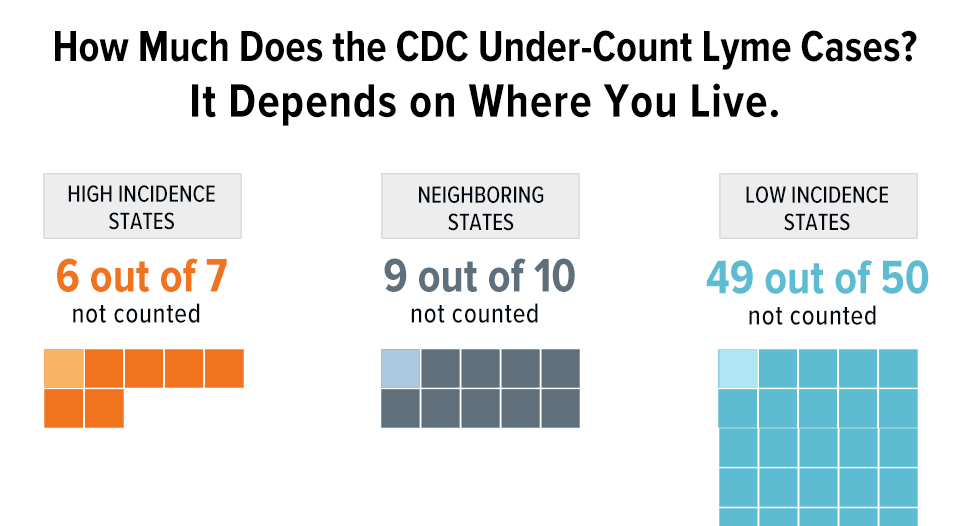It’s hard to believe that our patient-driven big data project, MyLymeData, was launched just last November. In October and November of this year, we presented our first preliminary findings from the survey at the Columbia/LDA conference in Minnesota and at the conference of the International Lyme and Associated Diseases Society in Philadelphia.
The importance of early diagnosis of Lyme disease
Our initial results presented at the conferences highlight the importance of early diagnosis of Lyme disease to improve patient response to treatment. 23% more patients who were diagnosed early reported being well compared to those diagnosed late. However, the need for better treatments in both late and early Lyme disease was evident. Over 4,000 patient were included in the study. Of those diagnosed with Lyme disease early, 68% remained ill. For those diagnosed late, 91% reported still being ill. Better treatment options are needed to improve these outcomes. Our press release regarding these findings may be found here.
Many patients are not evaluated properly because their physicians incorrectly believe that there is “no Lyme here.”
The failure of early diagnosis of Lyme disease harms patients
The failure to diagnose early is an avoidable harm to patients. Patients report that diagnostic delays are associated with false negative test results (57%) and with positive test results that are dismissed by their clinicians as “false positives” (13%). Many patients are not evaluated properly because their physicians incorrectly believe that there is “no Lyme here.”
The poster evaluating early Lyme disease diagnosis vs. late diagnosis that we presented at the conference is below.
You can download the two page poster handout for the conferences.
We recently launched additional Lyme disease surveys that:
- Track patient results to treatment over time on a quarterly basis to find out which treatments work the best.
- Look at family history of illness, other conditions the patient may have as well as genetic information, biorepository donations, and whether Lyme is passed from mother to child or between sexual partners.
- Collect much needed information regarding patients who are deceased.
Over 6,500 patients are currently enrolled and the number continues to grow. Our goal is 10,000. We are currently in the top 10% of patient registries. If you have not yet enrolled in MyLymeData, please join today. If you are already enrolled, please log in and take your follow-up survey.
If you are a researcher who wants to collaborate with us, please contact me directly.
The MyLymeData Viz Blog is written by Lorraine Johnson, JD, MBA, who is the Chief Executive Officer of LymeDisease.org. You can contact her at lbjohnson@lymedisease.org. On Twitter, follow her @lymepolicywonk.



